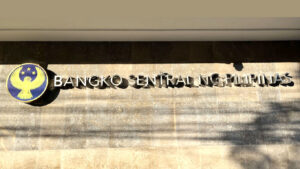Yields on term deposits mixed
YIELDS on the Bangko Sentral ng Pilipinas’ (BSP) term deposits were mixed on Thursday after the Bureau of the Treasury launched its second dollar bond offer for this year. The central bank’s term deposit facility (TDF) attracted bids amounting to P231.77 billion on Thursday, above the P200 billion on the auction block and the P164.441 […]

YIELDS on the Bangko Sentral ng Pilipinas’ (BSP) term deposits were mixed on Thursday after the Bureau of the Treasury launched its second dollar bond offer for this year.
The central bank’s term deposit facility (TDF) attracted bids amounting to P231.77 billion on Thursday, above the P200 billion on the auction block and the P164.441 billion seen a week ago for a P160-billion offer.
Broken down, tenders for the six-day papers reached P133.79 billion on Thursday, higher than the P100 billion auctioned off by the central bank. This was also more than the P85.501 billion in bids for the P80-billion offer seen the previous week.
Banks asked for yields ranging from 6.2595% to 6.35%, a narrower band compared with the 6.24% to 6.5% recorded a week ago. This caused the average rate of the deposits to go down by 0.9 basis point (bp) to 6.3033% from 6.3123% previously.
Meanwhile, bids for the 13-day term deposits amounted to P97.98 billion on Wednesday, lower than the P100-billion offering but above the P78.94 billion in tenders for the P80 billion placed on the auction block last week.
Accepted rates for the tenor were at 6.285% to 6.535%, slightly narrower than the 6.25% to 6.55% margin recorded a week ago. With this, the average rate for the deposits inched up by 1.95 bps to 6.3672% from the 6.3477% logged in the prior auction.
This week’s TDF auction date and tenors were adjusted due to the suspension of work in government agencies on Aug. 28 amid inclement weather.
The BSP has not auctioned off 28-day term deposits for more than three years to give way to its weekly offerings of securities with the same tenor.
The term deposits and the 28-day BSP bills are used by the central bank to mop up excess liquidity in the financial system and to better guide market rates.
TDF yields’ week-on-week movements were mixed amid the government’s latest global bond issuance, Rizal Commercial Banking Corp. Chief Economist Michael L. Ricafort said in a Viber message.
Mr. Ricafort said the dollar bond offer “siphoned off some of the excess liquidity in the financial system, though this would help reduce the need for the National Government to borrow locally.”
The National Government raised $2.5 billion from its offering of triple-tranche US dollar-denominated bonds, fixed-income news provider IFR reported on Thursday.
Broken down, it generated $500 million via 5.5-year notes, $1.1 billion from 10.5-year bonds, and $900 million from the 25-year sustainability tranche.
This was in line with Finance Secretary Ralph G. Recto’s expectation of raising $2 billion to $2.5 billion from the issue.
Proceeds from the bonds will be used for general purposes, including budgetary support. Funds raised from the sustainability bond tranche will go to eligible projects under the government’s Sustainable Finance Framework.
“TDF average auction yields also mixed, as some investors tend to lock in interest rates for longer-term tenors amid widely expected US Federal Reserve and BSP rate cuts for the coming months, as affirmed recently by Fed Chair Jerome H. Powell and most Fed officials during the Jackson’s Hole Economic Symposium over the weekend,” Mr. Ricafort added.
Markets have fully priced in a 25-bp rate cut from the Fed next month, with a 34.5% chance of an outsized 50-bp reduction, according to the CME FedWatch tool, Reuters reported.
Investor bets for imminent US rate cuts were further cemented by Mr. Powell’s remarks at Jackson Hole last week that the “time has come” to cut rates, joining a chorus of Fed policy makers who have signaled the same in recent times.
Meanwhile, the BSP’s policy-setting Monetary Board this month reduced its target reverse repurchase rate by 25 bps to 6.25% from a near 17-year high of 6.5%, marking its first easing move in nearly four years.
BSP Governor Eli M. Remolona, Jr. said they could cut rates by another 25 bps within the year. The Monetary Board’s remaining policy-setting meetings this year are on Oct. 17 and Dec. 19. — Luisa Maria Jacinta C. Jocson with Reuters













